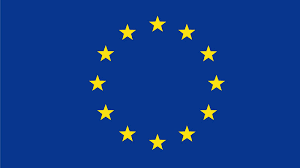Data without guarantee. Errors excepted.

If a company is based in the EU, it has different VAT obligations. This depends on where it sells to.
VAT in e-commerce (B2B)
- If you sell goods to companies within the EU, no value added tax (VAT) is due in Germany.
- You can deduct the products you need for sales from your value added tax (VAT).
- If you sell goods exclusively in other EU countries, you must register in the respective country with a VAT identification number.
VAT in e-commerce (B2C)
- Transactions under these EU rules are contracts between traders and end customers, unless you are dealing with them face to face.
- Goods that are sold directly to end customers, as in B2C business, are generally always subject to VAT.
- The respective tax rate depends on the country in which the buyer is resident.
- The buyer must pay VAT.
EU product directives and regulations

- Products that you want to sell on the EU market must comply with EU directives so as not to jeopardise human and animal welfare, the environment and/or consumer rights.
- Prices must be the same in every EU country so that every customer pays the same price.
- Also make sure that you can either ship to any country or offer the customer the option of picking up the goods.
- In rare cases, export duties may be incurred when exporting goods to third countries.
- You need an EORI number (Economic Operators Registration and Identification number) to register and identify economic operators throughout the EU.
- You should apply for the EORI number in good time before your first customs declaration.






